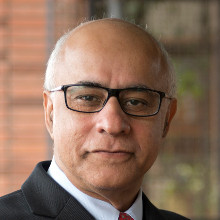[Image by Gerd Altmann under Creative Commons]
As entrepreneurs, beyond just the financial metrics, what are the measures that should matter most to us?
Let us stay with the financial metrics for a moment, even as you want to stretch your horizon well beyond them. The problem with an understanding of financial metrics is that, they can mean many things to many people. The import changes with the entrepreneur, the nature of the industry, prevalent socio-economic realities and a host of other things. As a result, to a good old patriarch from the Rajasthan business family, the everyday profit and loss is what financial metrics are all about, whereas to the digital fairy in the start-up land, it would sound old-fashioned; she would only touch the shoulders of someone obsessed with valuation over value. To the former, business is a Goddess, to the latter, it is a flirt. So, financial metrics that follow from the two realities aren’t just one set of measurement. This in itself poses difficulties.
The question that comes up from this context is, whether there still may be some parameters within the broader set, that never really lose their criticality even as the flavour of the season may change. The answer is yes, yes and yes. For a start-up, it is all about cash flow. Every other financial parameter can wait. Then and forever, it is the days of sales outstanding in terms of receivables and last but not the least, it is the profit and loss. These are foundational and notwithstanding the fickleness of the world, please do not lose sight of them. Now let us shift to the measures beyond money.
For a start-up, it is all about cash flow. Every other financial parameter can wait.
Think of two and stay with them forever: customer satisfaction and employee perception. Commonsensical as they may appear, most entrepreneurs don’t pay attention to these as structured, expertise-led and predictably periodical exercises. A few that do, do not always align short and medium goals with the gaps these two metrics throw up.
Let us talk about the customer satisfaction angle first. Entrepreneurs often do not have clarity about who to go to, what to ask, how to create a baseline, who else to compare with and finally, whether to do it in-house or with external help. I always maintain that you do your customer satisfaction survey with external help; in doing so, look for expertise, an eye for excellence, prior engagement with your industry and above all, the ability to make sense of the voice of the customer and the ability to deliver advisory capability. They must help you settle your enterprise-level, your own, and then the cascading objectives everyone else in the organization must have based on the stated and the unstated voice of the customer.
Like customer satisfaction as a measure of good management would always stay, so will measurement of employee perception. Like in the previous case, it is not seen as a must-have by many entrepreneurs who look at it as warm and fuzzy. Some who think it as important, postpone it to a time when the organization would grow up some, and be able to afford the expense of a good advisory. This is not the right way of looking at a formal measure of employee wellbeing in the organization. It has to be taken up from the beginning and with expert help. Entrepreneurs who do it, would tell you how valuable and character-defining it can be. The caveat of course is that you should not do it in a start-stop mode. You may be surprised how often that is the case; people say, let us not do the survey this year as the mood of the organization is not good! A great example of building a consistent set of measures for employee perception and people engagement is Ujjivan, the much admired micro-finance organization that has been doing it from the time it was really tiny. Founder Samit Ghosh would tell you how much he values it; coming from a banker, it drives home the point.
Beyond measuring financial numbers, customer satisfaction and employee perception, a forward looking entrepreneur measures reputation. Two decades ago, Wipro, then a small company, typically measured its top line, bottom line, market share, customer and employee satisfaction, but it also measured its reputation. Some readers may raise their eyebrows on the seemingly qualitative aspect of it. In reality it can be a very number-driven, very quantifiable thing. Imagine being on a best employer survey, or competing for an innovation award, or trying to be in the reckoning for a most-admired company survey that is seen as an industry benchmark. So, it is not woolly as some may think. Modest as it may seem from the vantage point of now, in the 1990s, beyond financial metrics, one of Wipro's goals was to be among India's top-50 most admired companies.
A forward looking entrepreneur measures reputation.
One night, after a long day reviewing the lighting business and a horrendously delayed flight from Aurangabad, getting into his car at Mumbai airport, I asked Azim Premji a question: if he were to have only one measure for the corporation and only one, which one would he keep? Without batting an eyelid, Mr. Premji said, he would keep the measure of being among India’s Top 50, most admired companies. Reputation is the new capital!
If you have any questions mail us as askbagchi@foundingfuel.com


